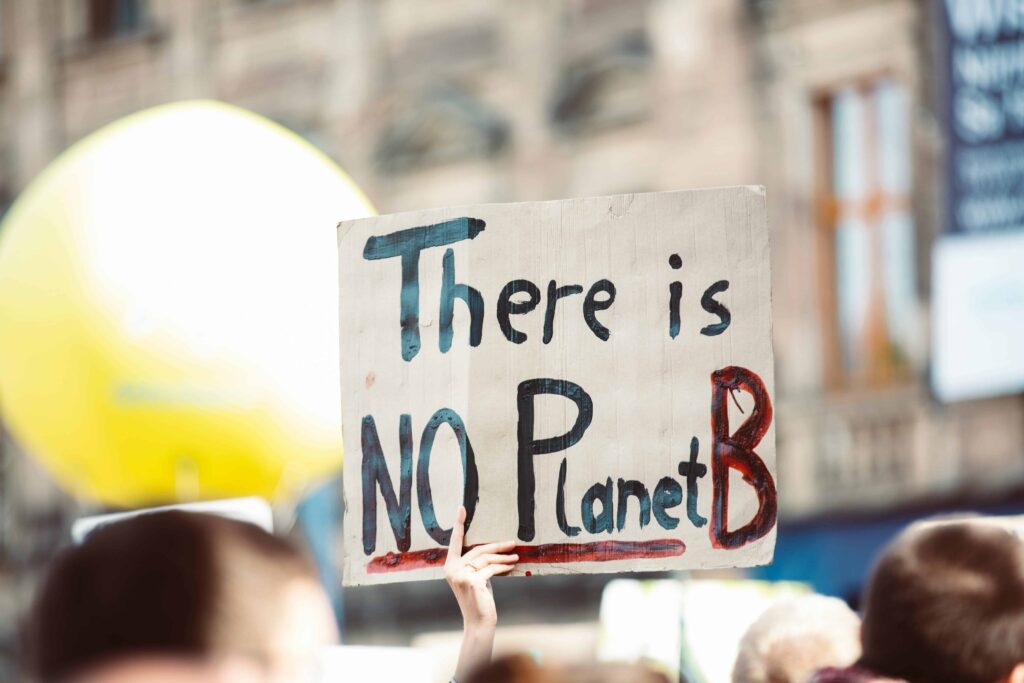The present world is continuously changing and grappling with ecological challenges, an issue that contributed to the popularity of minimalism. For this reason, eco friendly minimalist lifestyle does not only imply decluttering and simplifying your life but also reducing less waste and environmental impact while embracing sustainability. This paper will discuss how minimalism benefits the environment by promoting greener living and a more sustainable planet.

ECOFRIENDLY HOME
What is Minimalism and How Does it Benefit the Environment?
Understanding the Concept of Eco Minimalism
Minimalism is about having fewer belongings; however, it goes beyond that: it is about living with little wastage in life, disposing of unnecessary mess around our lives. It involves individuals focusing on what really matters in life as they eliminate the unnecessary materialistic aspects which often make them get new clothes instead of buying what is necessary.
Reducing Environmental Impact through Minimalism
Minimalist living strongly reduces one’s environmental footprint through advocating for less consumption and conscious selection of products one brings into his or her life. Consequently, resource use decreases while waste generation decline thus contributing to preservation of environment.
How Does Minimalism Help in Reducing Emissions and Carbon Footprint?

Taking up a minimalist lifestyle can lead to lower carbon emissions and pollution levels. People who live a minimalist existence can reduce their carbon footprints effectively by consuming less, turning towards environmental alternatives.
How can a Minimalist Lifestyle Contribute to Creating a Greener Environment?
Embracing Eco-Friendly and Sustainable Practices
Not only that, minimalism means living an eco-friendly and sustainable life. Individuals can switch to green energy sources, use products friendly to the environment as well as attempt to reduce pollution in diverse ways.
Impact of Minimalist Lifestyle on Greenhouse Gas Emissions and Pollution
Living minimalistic has a direct bearing on reducing the levels of greenhouse gas emissions and pollution. This can positively impact overall environmental contamination and the ecological effects it has upon the planet by embracing minimalism’s call for reduced consumption and waste generation.
Reducing Consumption and Waste through Minimalism
One of the basic principles of minimalism is reduction in both consumption and waste. By making thoughtful choices, abstaining from buying new clothes or anything unnecessary, proponents of minimalist lifestyles can help alleviate pressures on landfills while lessening the harmful impacts excessive garbage has on our planet.
Benefits of Minimalism for Environmentally Friendly Conservation
Contributing to the Protection of Natural Resources
Minimalism, which is environmentally friendly, is an important tool for the conservation of natural resources through effectiveness and preservation of our limited environmental resources. Eco-friendly minimalist approach enhances long-term sustainability of planet ecosystems and takes off pressure from crucial resources.
Effect of Minimalism on Consumerism and Fast Fashion
Minimalism opposes consumer culture by encouraging people to reduce their obsession with clothes through buying less, reusing old ones instead of buying new ones. Influenced by minimalism and sustainability, this change can significantly curb the need for high-speed production of clothes as well as decrease the ecological burden posed by fashion industry.

ECOFRIENDLY FASHION
Minimizing Energy Usage and Landfill Contribution through Minimalism
Switching to minimalistic style usually results in lower energy utilization as well as reduced amount of waste that is dumped into landfills. The less they consume goods then it means less energy is put in production and therefore reduces the negative effects that are caused environmentally due to waste management.
Embracing Eco-Friendly Minimalist Sustainability
Small Changes for Living More Sustainably
People are expected to lead simple lives by making small incremental changes to their everyday routines which will ensure that they promote a better environment. This could consist of public transport, less food waste and choosing sustainable alternatives instead of single use items.
How Minimalism Encourages Reuse, Recycling, and Donation
When you practice minimalism it encourages reusing belongings; recycling stuffs and giving out no longer needed items. Therefore, individuals who elongate the life cycle of their products and minimize disposal actively participate in the conservation of resources as well as minimizing their ecological footprints.

Driving Less and Its Positive Impact on the Environment
Minimalist way of life also includes driving less frequently or using alternative ways such as walking, cycling, or car sharing. This move decreases fuel consumption and vehicle emissions hence leading to a cleaner and healthier environment.
Challenges and Solutions in Implementing a Minimalist and Eco-Friendly Lifestyle
Overcoming Consumer Habits and Preferences
Transitioning into a minimalistic and eco-friendly lifestyle can be an uphill task for people who wish to change deeply ingrained consumer habits and preferences. Nonetheless, individuals may gradually adopt a greener way of life by deliberately making well-informed decisions and seeking sustainable substitutes.
Addressing the Issue of Decluttering and Reusing Items
Decluttering and reusing items in their various manifestations are fundamental elements of minimalism thereby making it difficult in managing possessions or optimizing available materials. Nevertheless, such challenges can be surmounted through innovative storage facilities as well as sharing resources among communities.
Resisting the Temptation of Fast Fashion and Excessive Consumption
Though this practice may seem irresistible, it is important to avoid falling into the trap of fast fashion as well as other forms of overconsumption due to negative implications on the environment. Consequently, people can withstand these attractions by increasing awareness about them hence encouraging sustainable fashion choices that would help mitigate the environmental impacts brought about by fashion industry.
In conclusion, adopting a minimalist lifestyle not only makes our lives easier but also helps the earth. To make this world greener, healthier and safer for future generations we need to advocate for change to sustainable practices ensure we reduce consumption in addition to calling for resource efficiency. Incorporating Minimalist Principles into Our Daily Lives Is One Way We Can Reduce Our Ecological Footprint And Help Preserve The Environment
If you like this content, consider write a review or helping us support this project financially. Our socials here
FAQ
Q: What are the environmental benefits of minimalism?
A: Embracing minimalism can help decrease your ecological footprint by reducing overconsumption and waste, thus conserving resources, preventing pollution, and minimizing the effects of global warming.
Q: How does minimalist living contribute to environmental sustainability?
A: Minimalist living is eco-friendly as it advocates for people to live with less stuff, buy environmentally safe products, manage waste better and be mindful of our carbon footprints.
Q: What are some ways minimalism supports eco-friendly living?
A: Minimalism supports eco-friendly living by promoting the use of sustainable and environmentally friendly products, reducing unnecessary consumption, and advocating for conscious choices that benefit the environment.
Q: Can minimalism help reduce air pollution?
A: Yes, adopting a minimalist lifestyle can aid in reducing air pollution by encouraging reduced consumer demand which results in reduced demand for products whose production process includes emission into the atmosphere.
Q: How does minimalism help protect our planet?
A: Minimalism protects the environment by reducing excess waste disposal, reducing resource use and making a commitment to sustainability that can manifest itself as natural landscapes being preserved intact.
Q: What role does minimalism play in reducing one’s carbon footprint?
A: Minimalism decreases your carbon emissions through conscious consumption, buying sustainable products and embracing an ecological style of life that minimizes environmental damages.
Q: How can minimalism positively impact supply chains and production processes?
A: Minimalism allows ethical behavior in trade hence fostering responsible supply chains as well as production processes thus helping minimize exploitation of natural resources while at the same time mitigating environmental damage.
Q: Is minimalism a lifestyle choice that can benefit the environment?
A: Yes, it is because choosing to live a more minimalist lifestyle helps to save the environment through reduced garbage output; decreased dependency on fresh supplies for goods; and more awareness on nature- friendly behavior patterns.
Q: What are some practical ways to incorporate minimalism for the good of the environment?
A:To incorporate minimalism for the environment’s sake, one can practice reducing consumption, reusing existing items as well as buying eco-friendly products and taking deliberate steps that encourage sustainable living
Q: How does minimalism align with the concept of living an environmentally conscious life?
A: Minimalism relates to leading an ecologically aware lifestyle by urging people to minimize their environmental influence, be conscious of what they buy and adopt a sustainability approach in all facets of their existence.



